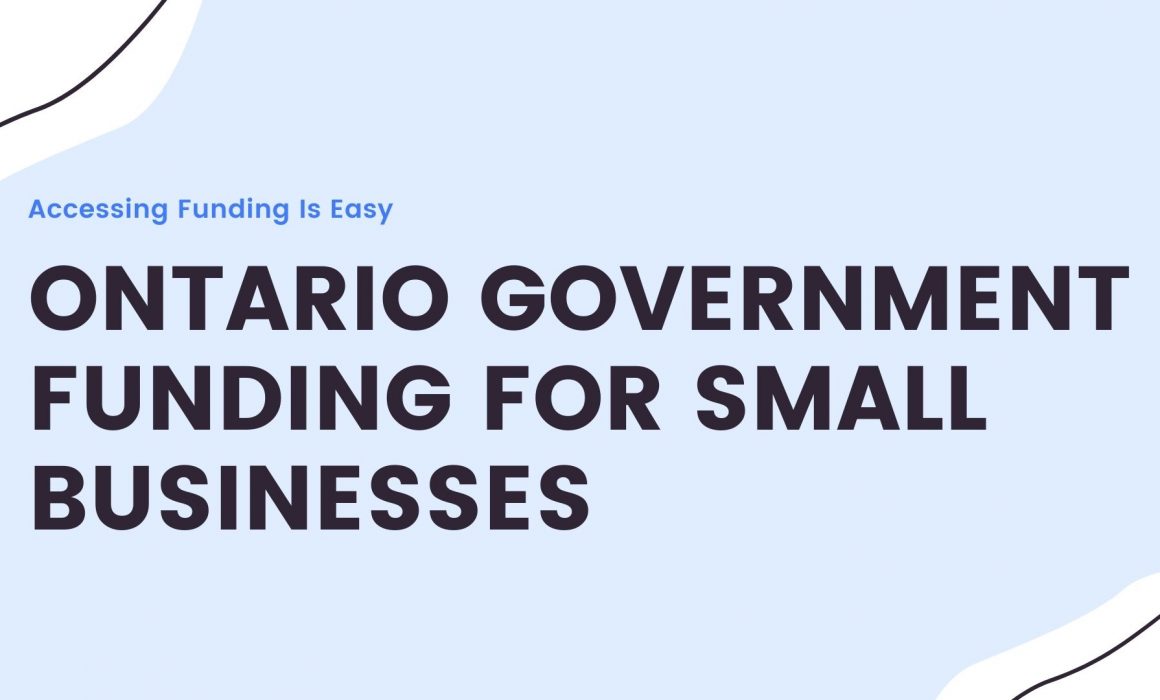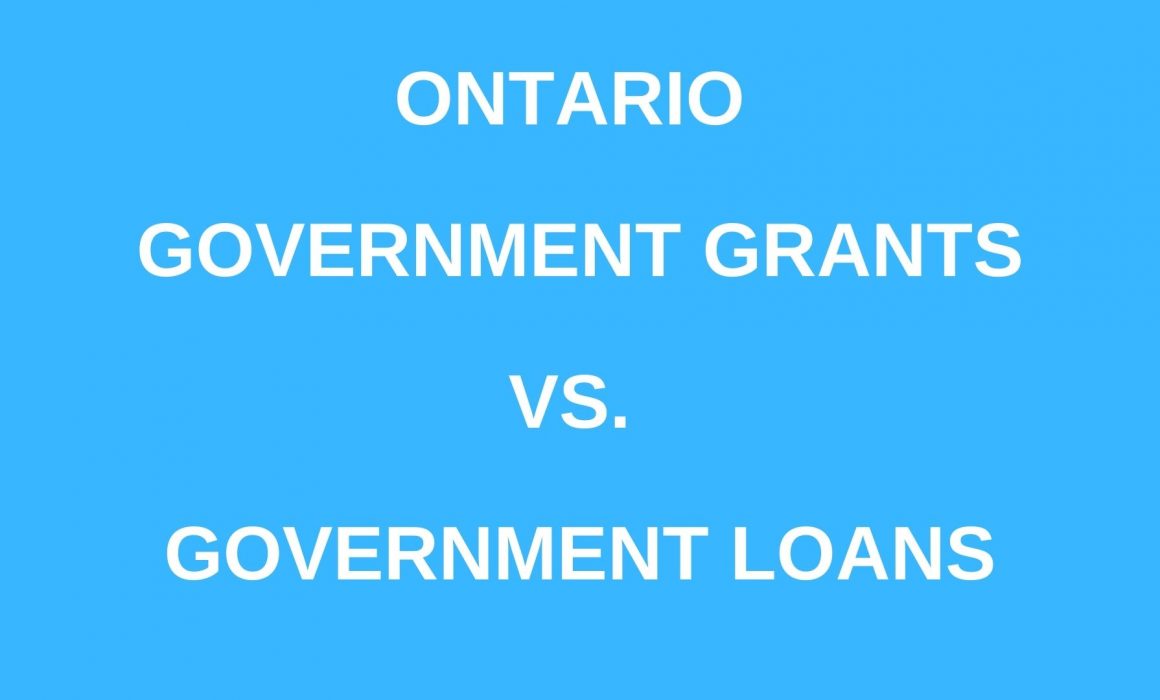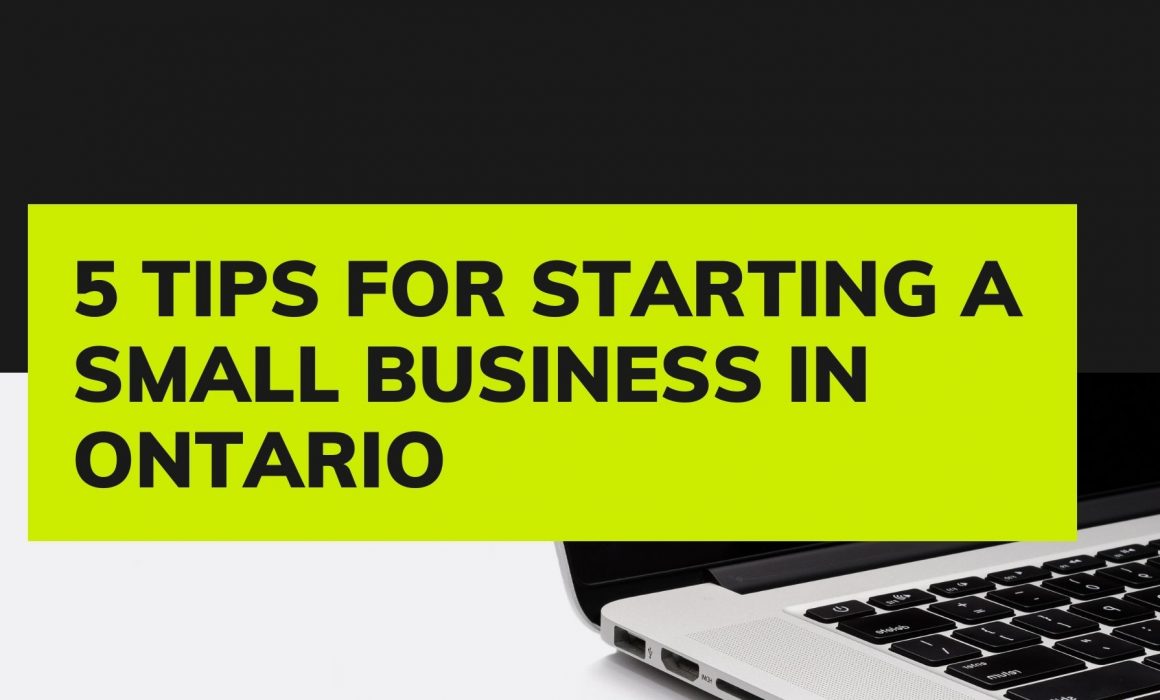You probably already know this, but running a small business in Ontario can be challenging, especially when it comes to making ends meet. It’s possible that you’re looking for solutions to both save money and expand your company. Putting in an application for funding from the government is one possibility. There are a wide variety of grants that can be applied for, and each one has its own set of requirements.
Let’s go over the top ten questions that owners of small businesses often have concerning the grants that the government offers;
1. What are the various categories of government grants that are made available to small businesses?
Grants from the government are an essential source of finance for small business enterprises. There is a wide selection of funding opportunities available from the Ontario government, and each award has its own individual criteria for qualification. You have to satisfy a number of requirements that the government has set up before you can be considered for a grant from the government.
Grants for new firms, grants for research and development, and grants to promote exports are some of the many types of grants that are made available to business owners by the government. Because the qualifying conditions for each grant are different, it is critical that applicants read the instructions in great detail before submitting an application.
One of the requirements that is frequently seen for government grants is that the company must either be situated in a particular geographical region or be involved in particular kinds of operations. In addition to this, the company needs to provide evidence that it is unable to secure finance from any other sources.
When looking for funding, it is important to investigate all of your alternatives because grants from the government can provide essential financial support to businesses. Because the government provides such a wide variety of grant programs, each with its own set of qualifying standards, it is highly possible that there is a grant program that is suitable for the requirements of your company.
2. How do you find and apply to government grants?
Visit the website of the government agency that administers the grant program in which you are interested in order to improve your chances of being awarded a grant from that government. Because the government offers a diverse selection of grant programs, it is essential to thoroughly understand the requirements before submitting an application. This may be difficult to do, as there are so many different programs. To simplify your search, you can also look through the funding database that can be found at the following link: Funding Database which contains details on all of the different government grant opportunities.
Before applying for a government grant, it is essential to study the criteria in detail and make sure you satisfy all of the prerequisites listed for that particular grant. You have to satisfy a number of requirements that the government has set up before you can be considered for a grant from the government.
3. Are there any grants specifically designed for startups?
There is funding available from the government for companies of every size, and that includes new firms. There is a wide selection of funding opportunities available from the government, and each award has its own individual criteria for qualification. You have to satisfy a number of requirements that the government has set up before you can be considered for a grant from the government.
4. What are the benefits of receiving a government grant?
The benefits of government grants include:
1. Financial assistance: Government grants can provide vital funding for businesses, so it’s important to explore all your options when seeking funding. The government offers a wide range of grant programs with different eligibility requirements, so there’s likely a grant program that fits your business needs.
2. Increased visibility: A government grant can help a business gain increased visibility and credibility. In addition, a government grant can help a business expand its operations and reach new markets.
3. Tax breaks: Businesses that receive government grants are often eligible for tax breaks. This can help reduce the cost of doing business and improve the bottom line.
4. improved efficiency: A government grant can help a business improve its efficiency and become more competitive in the marketplace. In addition, a government grant can help a business expand its operations and reach new markets.
5. How much money can you receive from a government grant in Ontario?
The amount of money that a company can receive from the government in the form of a grant is contingent on the particular grant program that the firm is participating in. In most cases, a portion of the cash required to launch a new firm or grow an existing one can be obtained through grants offered by the government. Because the government offers a diverse selection of grant programs, it is essential to thoroughly understand the requirements before submitting an application.
6. How do I find out if my Ontario small business is eligible for a government grant?
Finding cash for your company through grants offered by the government can be an excellent option. But how can you determine whether or not your company is qualified to receive funding from the government?
When assessing whether or not your company is qualified to get a grant from the government, there are a few factors that need to be taken into consideration. You should begin by conducting research into the many different government grant programs that are now available. Because each program has its own set of qualifying standards, it is essential to locate one that is congruent with the objectives you have set for your company. When you have a list of possible programs in hand, the next step is to contact the government authorities that are in charge of the grants’ administration and inquire about the prerequisites for participation. They should be able to give you more detailed information about what it is that you will need to accomplish in order to qualify for the offer.
Last but not least, keep in mind that the majority of times, grants from the government are won through a competitive process. Because of this, you should always put your best foot forward when applying for grants. Your chances of getting awarded a grant from the government will improve significantly if you carry out all of this research and put together a compelling proposal.
7. What types of small businesses are typically eligible for government grants in Ontario?
There are certain requirements that must be met in order for a company to qualify for a grant from the government of Ontario, which means that not every company may take advantage of this sort of financing. In order for a company to be considered for a grant from the government, it is often necessary for the company to be working within a particular industry or area, such as manufacturing, agriculture, or research and development. In addition, companies are typically required to fulfil specific size criteria, such as employing fewer than 500 people total. However, even if a company does not satisfy these qualifying standards, the government may still make other forms of support, such as loans or tax benefits, available to the company.
As a consequence of this, it is in the best interest of your company to investigate any and all of the potential sources of finance that are open to it.
8. How much money can I receive in a government grant?
The amount of money that you are eligible to receive from a government grant is contingent upon the particular grant program for which you have applied. There are a variety of programs available, and some of them offer smaller grants of a few hundred dollars, while others offer larger grants of several thousand dollars. Researching the requirements of each individual grant program and making direct contact with the administrator of the program is the most effective way to find out how much money you may anticipate receiving from the grant. It is important to keep in mind that receiving funds from the government in the form of a grant is often subject to intense competition; therefore, even if you are successful in receiving a grant, the amount may be lower than what you had first asked. Nevertheless, grants from the government might be a useful way to finance your company or your project.
9. What are the application procedures for government grants?
Grants from the government are sums of money that are given by the government to individuals or organisations for the benefit of a certain cause. There is no requirement that the government pay back the money, nor is there any expectation that the beneficiary of the gift will provide anything in exchange for receiving it. Applicants for grants are often required to participate in a competitive procedure, during which they submit proposals detailing the reasons why they should be awarded the money. After that, a group of knowledgeable individuals evaluates the applications and chooses the most qualified candidates based on the proposals. The criteria that must be met in order to qualify for a grant from the government are different from one kind of grant to another and from one government agency to another. However, the majority of applications need to include some fundamental information about the applicant as well as a comprehensive explanation of how the award will be utilised. Additionally, applicants should be ready to discuss why they should be selected to receive the award and not one of the other candidates. When asking for grants from the government, following these guidelines will help you improve your chances of being successful.
10. Are there any grants available specifically for startups in Ontario?
Startups often face a unique set of challenges when it comes to funding their business. Government grants are one possible source of funding, but many startups are unaware of the available options. The government offers a number of grants specifically for startups, including the Small Business Innovation Research Program and the Small Business Technology Transfer Program.
These programs provide funding for innovative research and development projects that have the potential to create high-quality jobs and spur economic growth. In addition to government grants, there are also a number of private foundations that offer startup funding. However, these foundations typically require a more extensive application process and have stricter eligibility requirements. As a result, government grants are often the best option for startups seeking funding.









Recent Comments